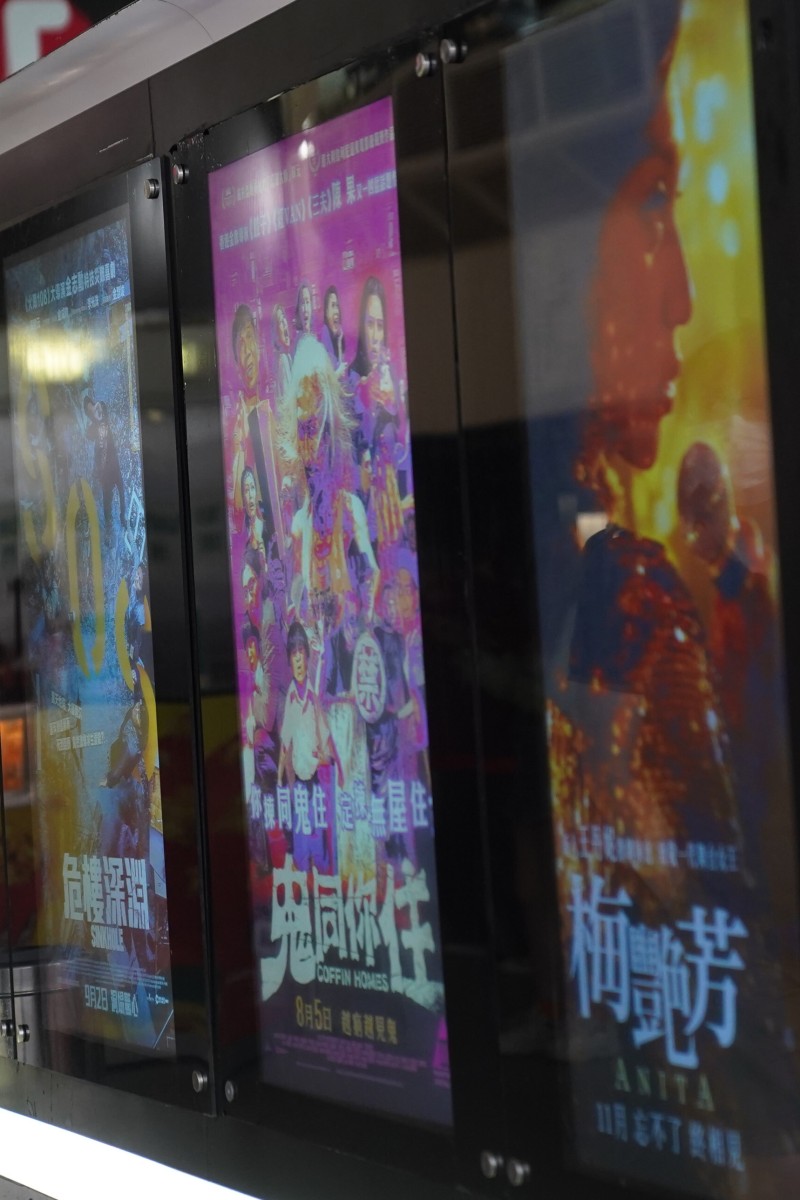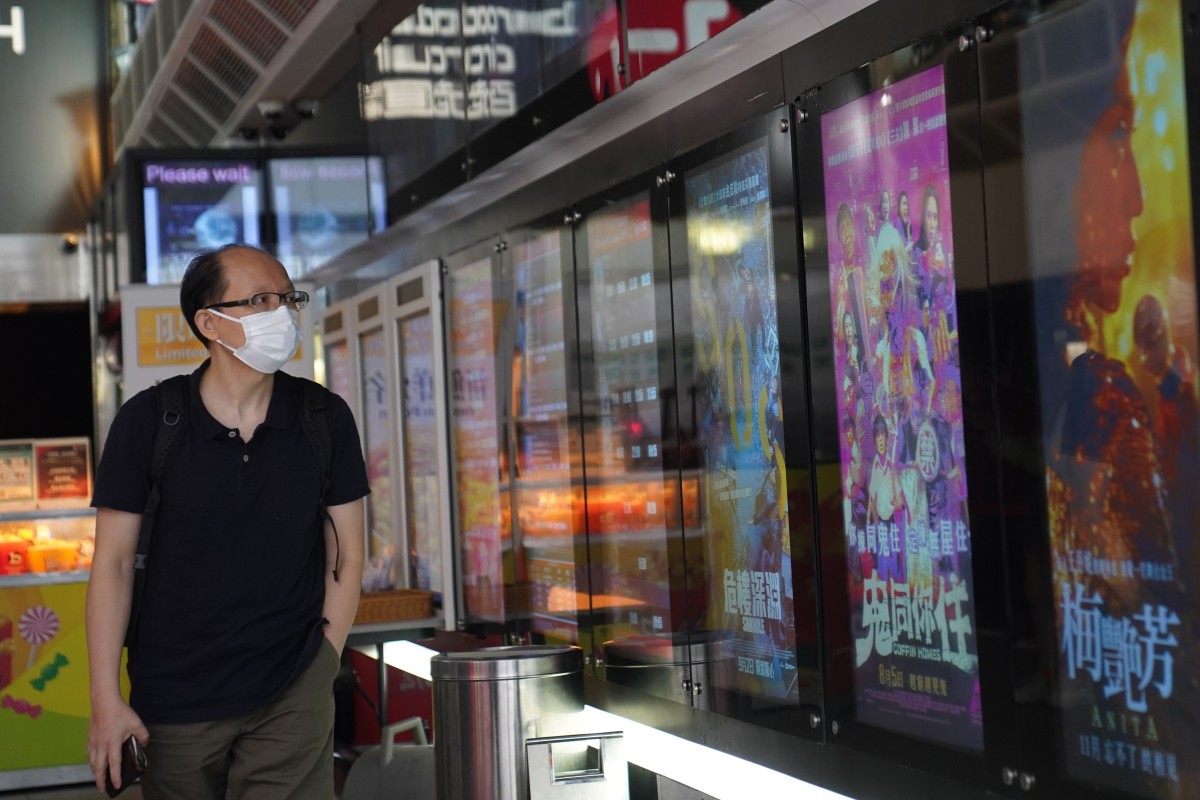
- Proposed changes to the Film Censorship Ordinance would increase the penalty for unauthorised screenings to three years in prison and a HK$1 million fine
- Films banned by the Chief Secretary won’t be allowed to be distributed or sold on the market
 Hong Kong authorities are moving to tighten their grip over film screenings in the city with a series of censorship law amendments that will include empowering the chief secretary to ban previously approved films, as well as new productions, deemed threats to national security. Photo: SCMP/ Sam Tsang
Hong Kong authorities are moving to tighten their grip over film screenings in the city with a series of censorship law amendments that will include empowering the chief secretary to ban previously approved films, as well as new productions, deemed threats to national security. Photo: SCMP/ Sam TsangHong Kong authorities are tightening their grip on film screenings with a series of censorship law amendments, one of which includes empowering the city’s No 2 official to ban previously approved productions if they are deemed threats to national security.
The impending changes to the Film Censorship Ordinance will also require official censors to assess the impact of a production on national security in the approval process, while the maximum penalty for unauthorised screenings will be increased to three years in prison and a HK$1 million fine.
Fearing the NSL, school libraries remove books from shelves
The amendments, to be tabled at the Legislative Council next Wednesday, were unveiled on Tuesday by Secretary for Commerce and Economic Development Edward Yau Tang-wah. The move comes shortly after new guidelines for censors were issued to the film industry in June.
“The amendments this time are simple and straightforward. The aim is to consolidate our legal foundation regarding film censorship work to prevent acts against national security,” Yau said.
The commerce chief said the usual appeal process through the official board of review could no longer be used to challenge bans imposed on national security grounds, and his office would be able to delay the vetting of films for up to 28 days if necessary. However, filmmakers could still appeal by asking the courts for a judicial review.
Industry players and movie fans have expressed fears that under such tougher rules, popular movies such as Stephen Chow’s satirical From Beijing with Love and the dystopian Ten Years could be barred from public screening or pulled from shop shelves. The former touches on corruption in mainland China, while the latter depicts a bleak future for Hong Kong under Beijing’s control.
Yau defended the retroactive power given to the chief secretary to revoke approval or exemption previously granted to productions
“We need this provision to cater for circumstances where there might be chances that a film, which was graded or approved before, but given the new law enacted and the new guidelines issued, needs to be reconsidered,” he said. “We need such legal power to cater for such circumstances.”
90,000 people left Hong Kong over the last year
Clement Leung Cheuk-man, permanent secretary for commerce and economic development, added that any films banned by the chief secretary – including related products such as DVDs – could no longer be distributed or sold on the market.
The commerce minister, however, said there was no official list of previously approved movies which could be outlawed now on national security grounds.
“We don’t have such a list in mind at all,” he said.
According to the guidelines for censors issued in June, public screenings of films would be disallowed if they were found to be “endorsing, supporting, promoting, glorifying or inciting” acts of subversion, secession, terrorism or collusion with foreign forces – which are crimes under the national security law.
Under the Film Censorship Authority’s current setup, a panel of 40 members appointed by the chief executive and advised by a group of 300 laypeople reviews submissions and assigns films a viewing classification based on depictions of sex, violence, crime or insults to race or religion, among other concerns.
Nine years in jail for the first person convicted under the NSL
The updated guidelines, issued by the Commerce and Economic Development Bureau, added national security concerns to the list.
Some film professionals and commentators have raised concerns about the implications of the tougher rules, suggesting that creativity and freedom of expression would suffer if a Hong Kong industry once dubbed the “Hollywood of the Far East” were subject to the same political restraints as in mainland China.
The Film Censorship Authority can also authorise an inspector to enter and search any premises without a warrant to stop unauthorised screening of films.
Federation of Hong Kong Filmmakers spokesman Tenky Tin Kai-man said he was unsure whether classic productions such as Her Fatal Ways, a film released in 1990 that highlighted the mainland-Hong Kong culture clash, would have their approvals revoked.
“I don’t know. There are no cases so far. When things haven’t happened yet, we shouldn’t scare ourselves first,” Tin said.
Hong Kong’s largest teacher’s union disbands, saying it doesn’t see a future
He suggested those who had market sense would not want to court trouble and test the red lines, adding that he had not heard of any filmmaker planning to produce movies that could be controversial.
Ying E Chi, the distributor of the controversial protest documentary, Inside the Red Brick Wall, said Yau’s remarks only proved that their previous screenings had been legal.
“If they revoke approval, then we will just stop [screening] them,” artistic director Vincent Chui Wan-shun said.